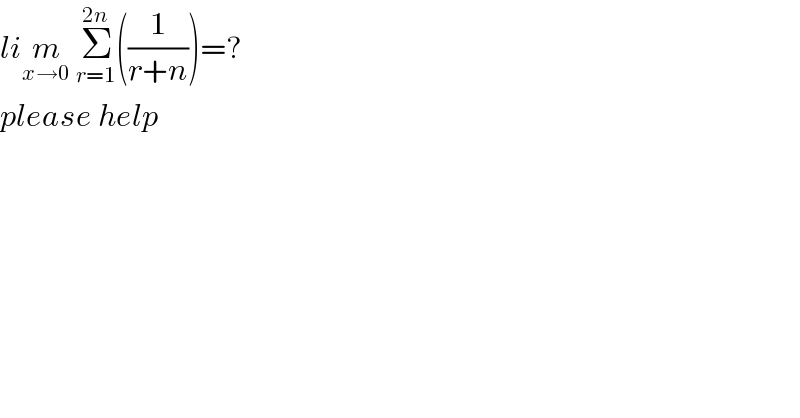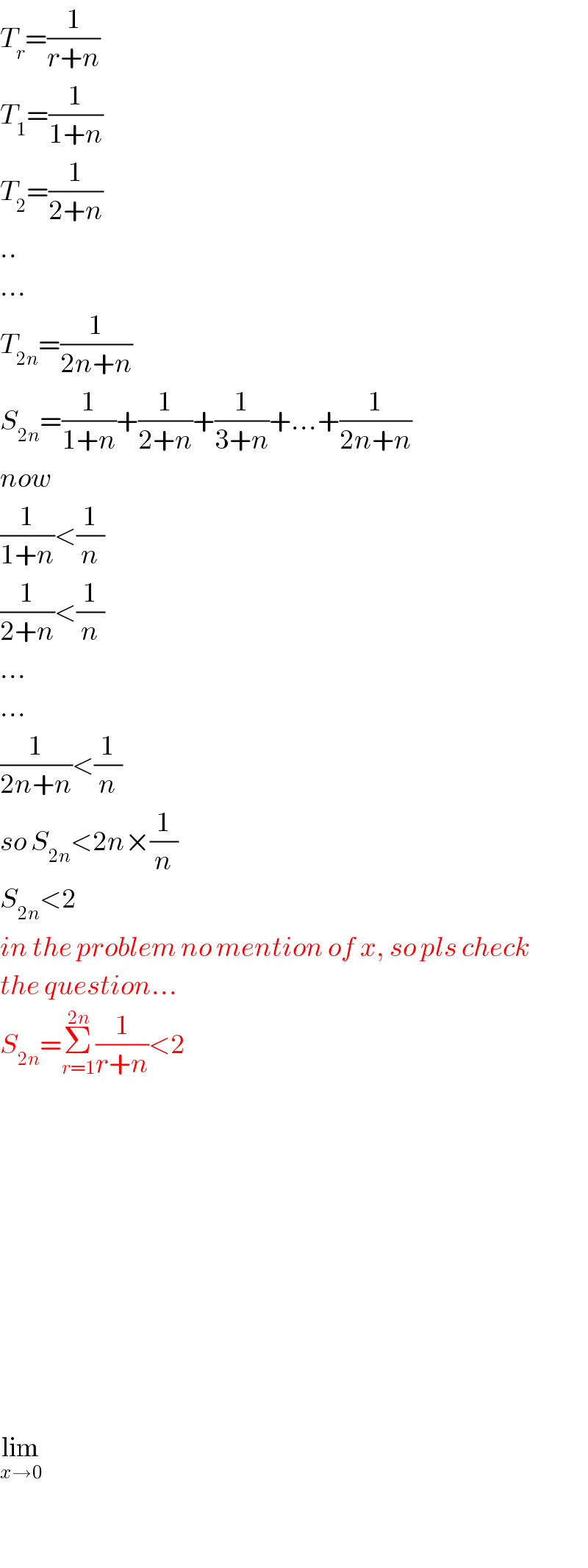
Question and Answers Forum
Question Number 50293 by pooja24 last updated on 15/Dec/18

Commented by maxmathsup by imad last updated on 15/Dec/18
![let S_n =Σ_(k=1) ^(2n) (1/(k+n)) ⇒S_n =Σ_(k=1) ^n (1/(k+n)) +Σ_(k=n+1) ^(2n) (1/(k+n)) =A_n +B_n we have A_n =(1/n) Σ_(k=1) ^n (1/(1+(k/n))) →_(n→+∞) ∫_0 ^1 (dx/(1+x)) =ln∣1+x∣]_0 ^1 =ln(2) changement k−n =p give B_n =Σ_(p=1) ^n (1/(n+p+n)) =Σ_(p=1) ^n (1/(p+2n)) =(1/n) Σ_(p=1) ^n (1/(2+(p/n))) →_(n→+∞) ∫_0 ^1 (dx/(2+x)) =[ln∣2+x∣]_0 ^1 =ln(x)−ln(2) ⇒ lim_(n→+∞) S_n =lim_(n→+∞ ) (A_n +B_n )=ln(2)+ln(3)−ln(2) =ln(3)](Q50303.png)
Commented by maxmathsup by imad last updated on 15/Dec/18

Commented by tanmay.chaudhury50@gmail.com last updated on 15/Dec/18

Commented by maxmathsup by imad last updated on 15/Dec/18

Answered by tanmay.chaudhury50@gmail.com last updated on 15/Dec/18

Answered by ajfour last updated on 15/Dec/18

Commented by tanmay.chaudhury50@gmail.com last updated on 15/Dec/18

